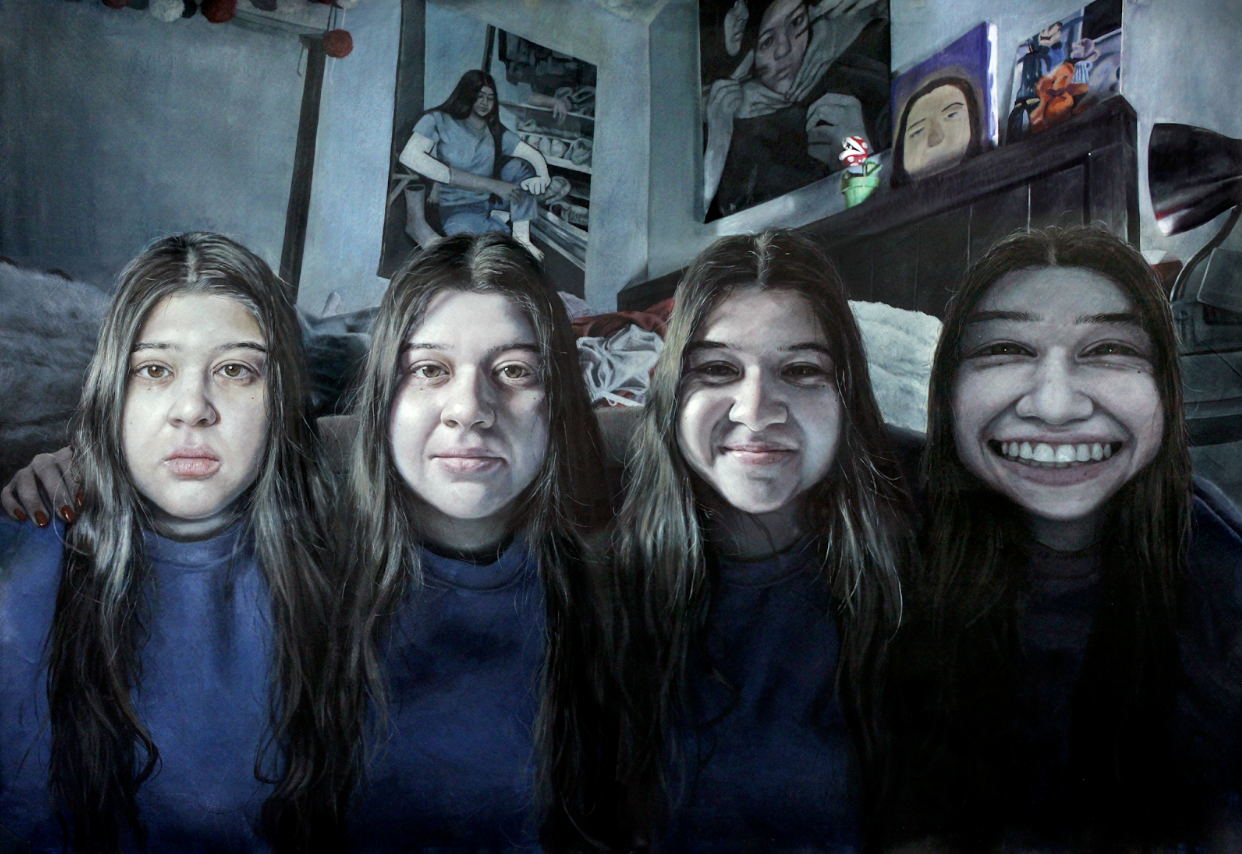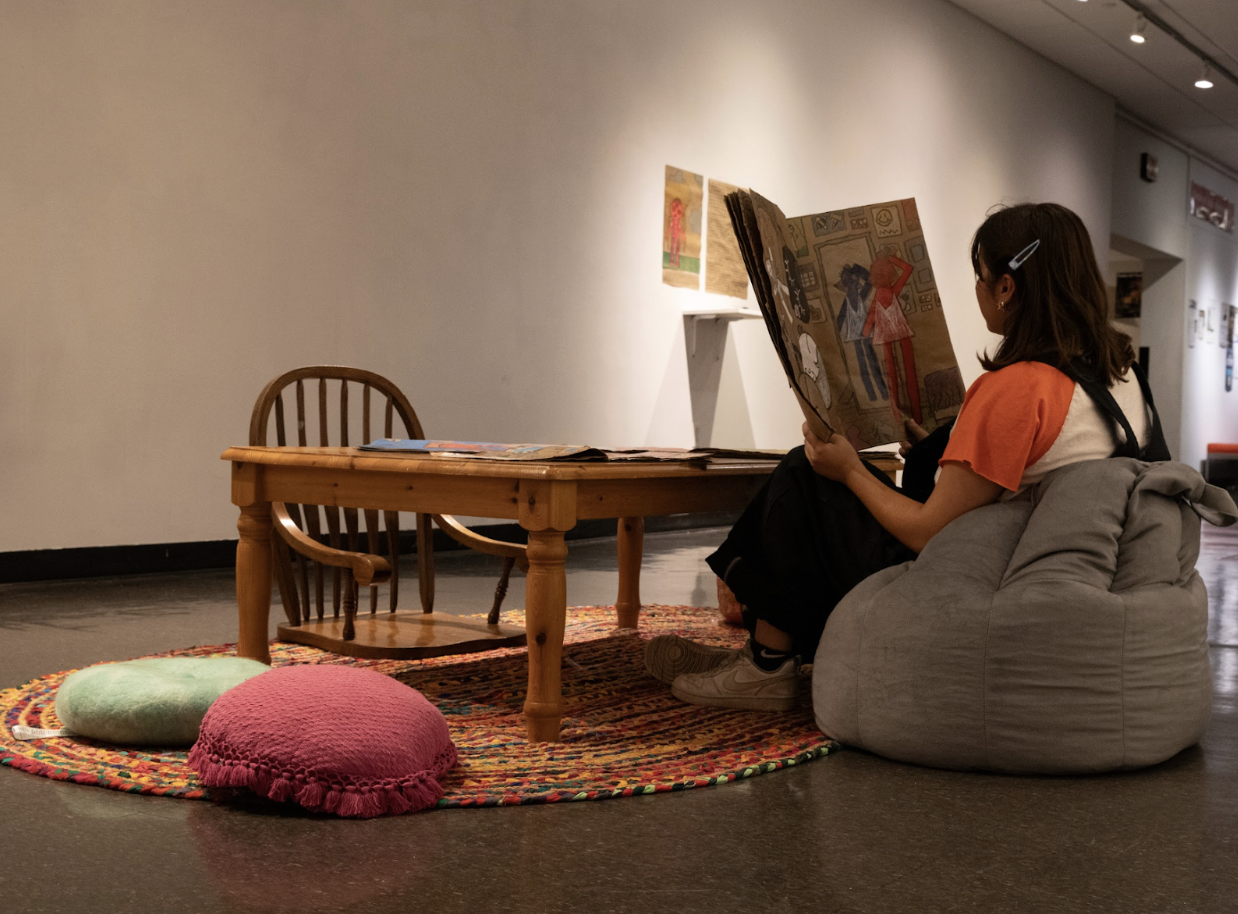TikTok-star-turned-RISD student, Camila Salinas, discusses the evolution of her self-portraits through the pandemic, internet stardom, and art school. She reflects on authenticity, the impact she hopes her work has on viewers, and the legacy she’s beginning to build as a young artist.

The first time I saw a Godard film was in my sophomore year, on a computer monitor in a dorm room, a fact that would probably trouble and tickle the cinephile. The film was Masculin, Feminin. I was newly a film student with limited exposure to French cinema, but if you know Godard, you know that exposure is no barrier to falling in love with his world. The film follows two lovers with conflicting tastes and politics but does not stick to any one plot line or narrative style. Cut between the lovers’ stories are interviews with the actors’ asking them about love, sex, and politics. Each transition is marked by a black title screen and the jarring sound of something close to a jaguar roar and a subway screeching to a stop. There was something so familiar about the film. But not familiar in that it brought to mind other films from the 60s, but familiar in the sense that it felt almost referential to contemporary cinema. It is that feeling that makes Godard so pleasing to watch. You know you are watching something the first of its kind.
Jean-Luc Godard, the groundbreaking and genre-bending French New Wave filmmaker and critic whose work was spellbindingly intimate, as well as politically radical, passed away at age 91 in his Switzerland home on September 13th.
Godard was a member of the original pack of French New Wave filmmakers. The marker of the New Wave was that instead of being studied filmmakers within institutions, they were first students of film critique. Many wrote for the French publication Cahiers du Cinema where Godard published his first writings at twenty-one on the topics of montage and defying classical construction. His theoretical works would become an intrinsic part of his filmic works, setting him apart from his New Wave comrades.
Defiance is the word that comes to mind when reminiscing on Godard’s career. Prior to his breakout film, Breathless, the use of the jumpcut in film was a technical error. Purposeful distancing away from Hollywood grandiose and opting for something more akin to a home movie would be a product of a low-budget rather than an artistic choice. He made films out of order, prioritizing editing and what could be conveyed through montage rather than narrative structure. He viewed cinematic rules as optional and meant to be broken. In 1960, Godard made Le Petit Soldat which centered on espionage wars during the time of France’s war in Algeria. The messaging of the film was so rich with Marxist orthodoxies that it was banned in France.
Godard’s last completed film was Goodbye to Language in 2014. Notably shot in 3-D, the film discusses the technology of translation and is a testament to Godard’s refusal to stick by the old regime of anything. He adapted where he saw fit, he made films driven by personal curiosity, and he provided a consistently refreshing perspective in the age of mass consumerism. Even in the months leading up to his passing, he had visions of new films and written works. He is survived by his wife, Anne-Marie Mieville, who was also his frequent collaborator. You can stream many of his works on Kanopy as well as HBOMax.





